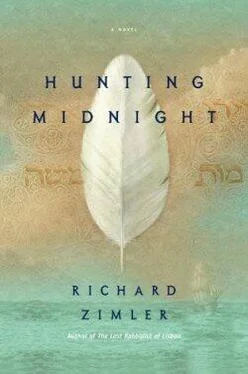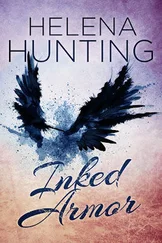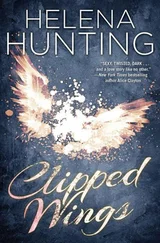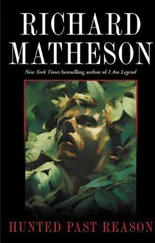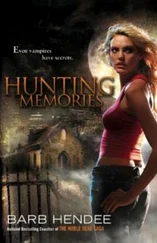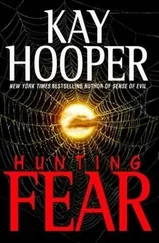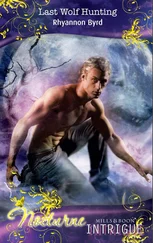Martha and her sons were disconsolate about having lost their beloved Weaver, and they only appeared in my cabin twice, to express their regret at my having been wounded and to join the celebration hosted by Captain Ott on our last night at sea. At our party, little Mimi asked if my arm had been given a proper burial. I did not know, I told her, but I hoped it was at peace wherever it was. Later, the surgeon told me it had been tossed overboard.
*
Sitting with Morri, I often pondered the mystery of Midnight’s disappearance. “We will start looking for your papa as soon as we get to New York,” I assured her.
“I’m afraid he’s dead, John. We have to face it.”
“No!” I shouted, letting my emotions escape my rigid control for a moment. “If he’s dead … if he’s dead, then why have I lost my arm? It can’t be!”
I was screaming so loud that Morri called for help. The surgeon came in and forced two spoonfuls of medicine into me. I fell into a slumber in which my regrets seemed to seep into everything around me. In one dream, Daniel and I were at the bird market in Porto. He said that my having only one arm was why I’d been unable to save him from drowning. When we returned to my home to eat supper with my parents, we realized we’d made a mistake: Our house looked more like a dank cave. We didn’t know where we were. Then Daniel said we were in the belly of a giant beast — half-lion, half-bird. We heard the wind howling outside, and we knew we were flying, but we could not see where we were going.
*
My shame made me wish to lock my door the closer we came to New York, for I’d soon have to face Violeta. I regretted now not having made love with her before, as a whole man.
There are some women who are all efficiency when faced with the difficulties of others, and Violeta proved herself to be one of these gifted individuals from the moment I appeared on her doorstep. After her first gasp of horror at my misfortune, her great jade eyes awash with tears, she transformed herself into my nurse. “You are home now,” she said, bending down to kiss my brow, “and I shall see you well if it is the last thing I do.”
It’s difficult for me to speak about the initial relationships Violeta established with the former slaves of River Bend, since over those first three weeks I was largely confined to my room. I could not help but notice, however, that Morri became taciturn and fidgety whenever she and Violeta found themselves with me at the same time. I could see in the girl’s worried face that she had sensed the clash of emotions inside our hostess.
Whenever she or Violeta would ask about my feelings, I would lie, speaking of the amputation as insignificant compared with the suffering of those in slavery. Morri was reluctant to give her opinion but finally said, “I don’t reckon miseries can be compared, John. When I was at River Bend, it didn’t make me feel any better knowing there were white families that were also dirt-poor and stuck living in places they hated. I made believe it helped, sure enough — we all did — but it didn’t help at all.”
*
Four long and intimate letters from Mama, Fiona, and my daughters were waiting for me upon my return. Thankfully, all was well in London. Seeing their handwriting made me tremble with longing, and I assured them that I was well in my replies. To avoid later criticism from my mother, I did note that I’d had a wee mishap in South Carolina. I said nothing more, since bad tidings would only act as a summons, and I could not face my mother in my present state. As soon as I decided my next move, I wrote, I would send instructions to Esther and Graça. I warned them that I might soon be asking them to join me in New York.
*
There were times over the next fortnight of loneliness and physical discomfort when I was one heartbeat from begging Violeta to hold me or let me see her without her bonnet. But she never descended to her garden in the night as on my previous visit. If she had, I might have hobbled down the stairs to her and settled at her feet like Fanny. Outside, under the stars, I think I’d have been able to speak the truth.
*
What started me on a healthier road was a startling correspondence I received from Isaac and Luisa. Aside from news of their family and colorful drawings of woodpeckers done by Noodle and Hettie, it contained an article from the Charleston Courier that characterized our flight to freedom not as an escape but as a foul and grotesque series of murders committed by the ghost of River Bend, who had been discovered — after all these years — to be Mr. Johnson the overseer! The reasoning behind this bold conclusion went as follows:
The body of Edward Roberson, Master of River Bend, had been found in one of the barns at River Bend, a knife in his neck. This was, of course, precisely how both Big and Little Master Henry were killed. Hence, the same villain must have been responsible. Additionally, Mr. Davies, an overseer at Comingtee Plantation, had died from a deep bayonet wound in his chest. It was written in the article that his presence at River Bend had been requested by Edward Roberson, as he had suspected his own overseer of plotting against him.
Mr. Johnson’s body had been found outside the First Barn, a bullet in his temple. This wound was apparently self-inflicted, since he gripped a pistol in his hand. His jaw had been broken, as though in a struggle with his employer, Mr. Roberson. Both men had scrapes on their elbows and knees, possibly resulting from a fistfight. Mr. Roberson also had a nasty gash on his head, likely the result of a pistol-whipping given him by the murderous overseer.
The article affirmed that Mr. Johnson had undoubtedly taken his own life after killing Edward Roberson and the other overseer. Two Negro foremen had also been killed, likely for remaining loyal to Master Edward.
“Their affection to him was as to a father,” Mistress Anne had told the Courier.
As to a motive, it was suggested that these were crimes of mad passion and greed. Mr. Johnson had been rumored for many years to be in love with Mistress Holly, the wife of Big Master Henry, the former owner. He had apparently sought to do away with Henry and his son in order to take control of both River Bend and its mistress. In his maniacal and unbalanced mind, he had imagined Edward Roberson as the last impediment to his plans to take control of the plantation.
There was no mention made of Joanne, Wiggie, and the other slaves we’d locked in the First Barn. Presumably, their lives had been spared.
In his letter to me, Isaac asked whether any of what was written in the article was true or if it was a concoction of the white authorities.
I found it all a tangled confusion and read it over many times, as though it were in a foreign language. Morri showed greater insight, telling me that the authorities would never have wanted it known that there had been a successful escape from a plantation. Such tidings would have struck fear in all the white residents of the South. In consequence, the planters and police had fabricated this story. Better have it known that it was a simple crime of passion and avarice than a successful Negro flight to the North.
“But how can they keep our escape a secret?” I asked her.
“They can’t. But if they don’t admit it happened, then the slaves will think of it only as a rumor and the white folks as a damnable lie. I’d reckon that’s how all our history is going to be written.”
It occurred to me then that similar unreported rebellions must have happened many times before, on plantations across the South. To this, Morri said, “I don’t expect there will be any record of any group of slaves having beaten them. Not a single printed page.”
Читать дальше
